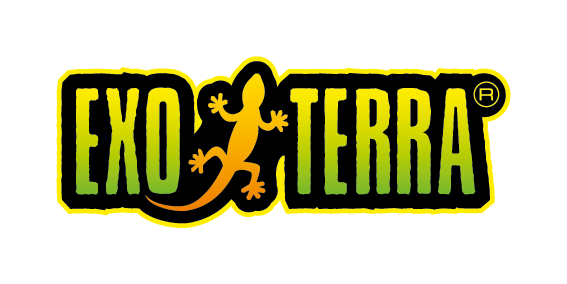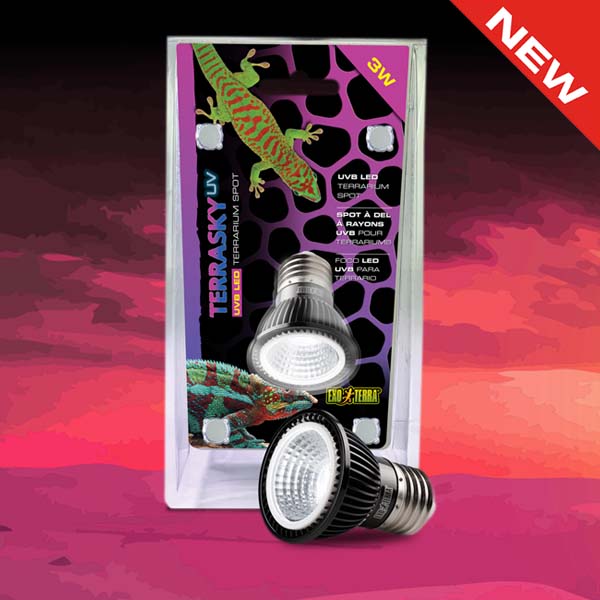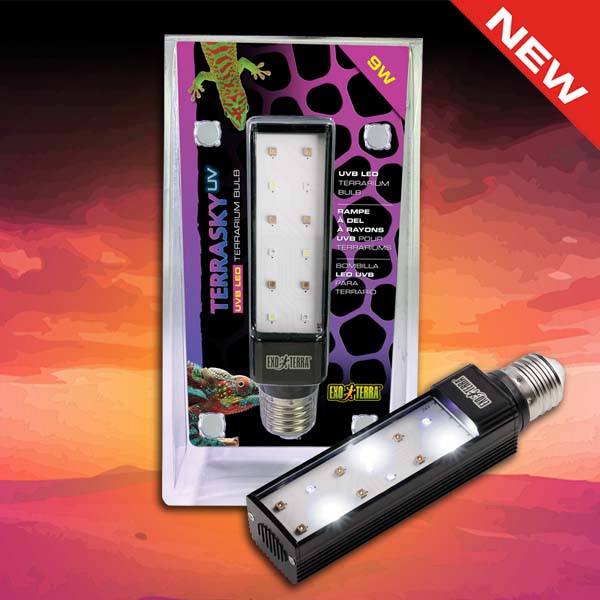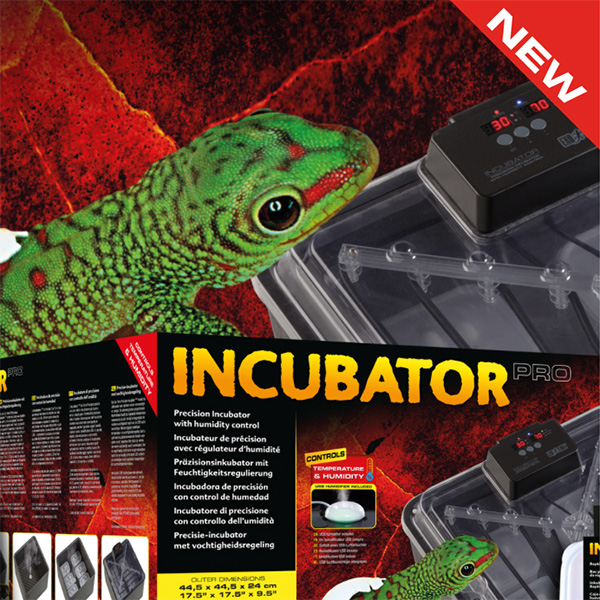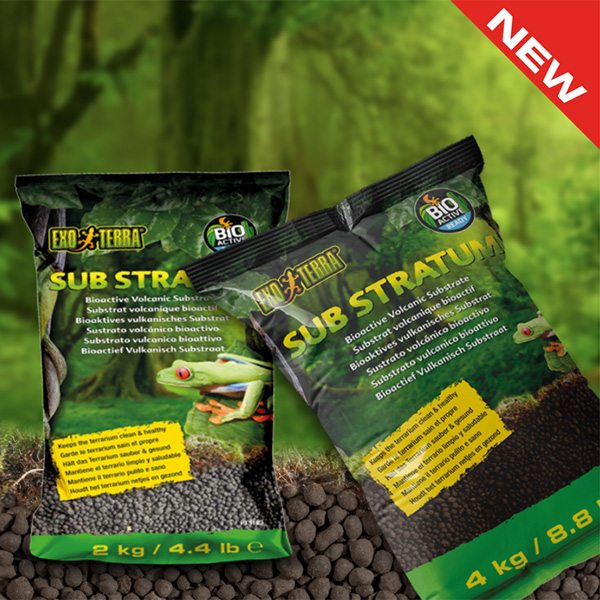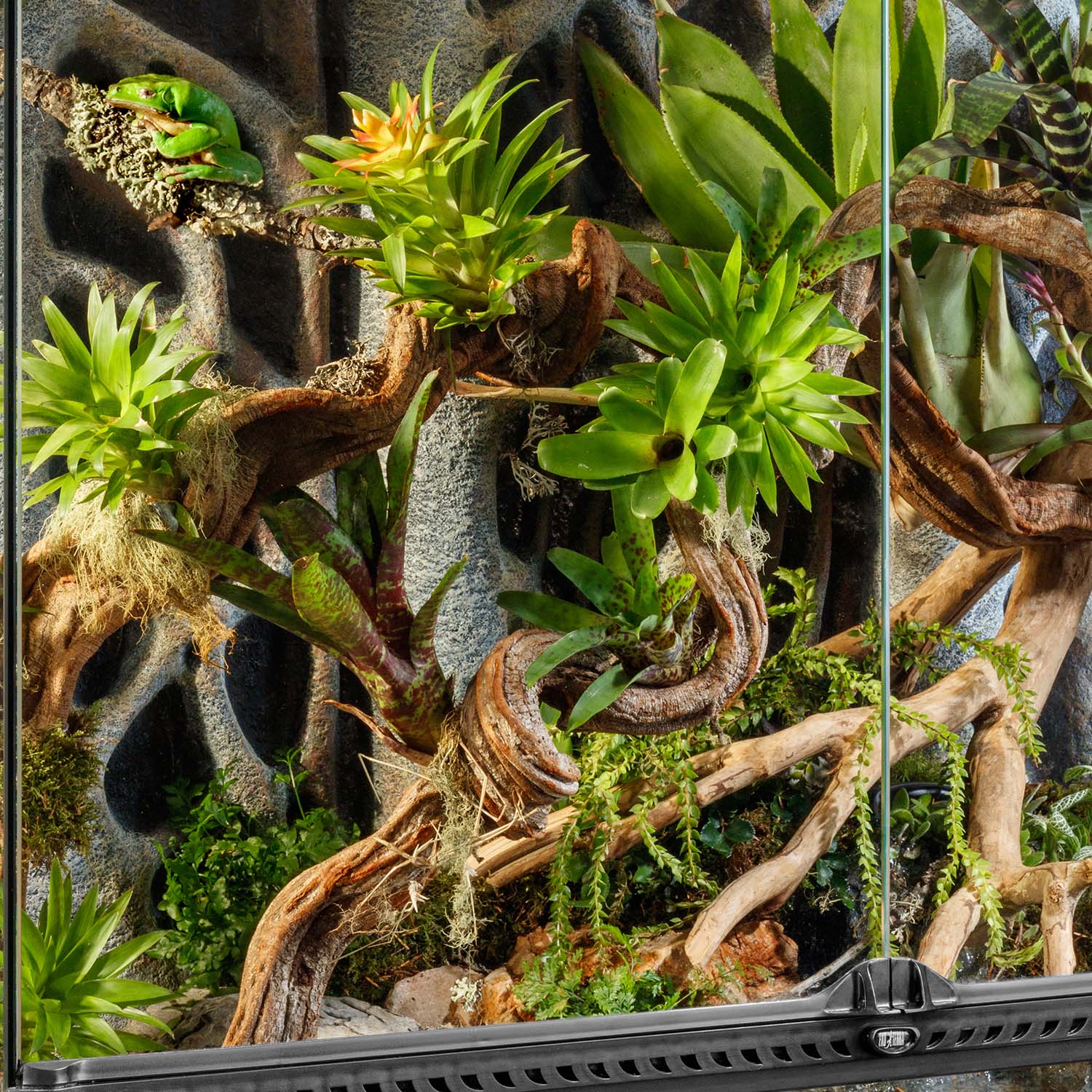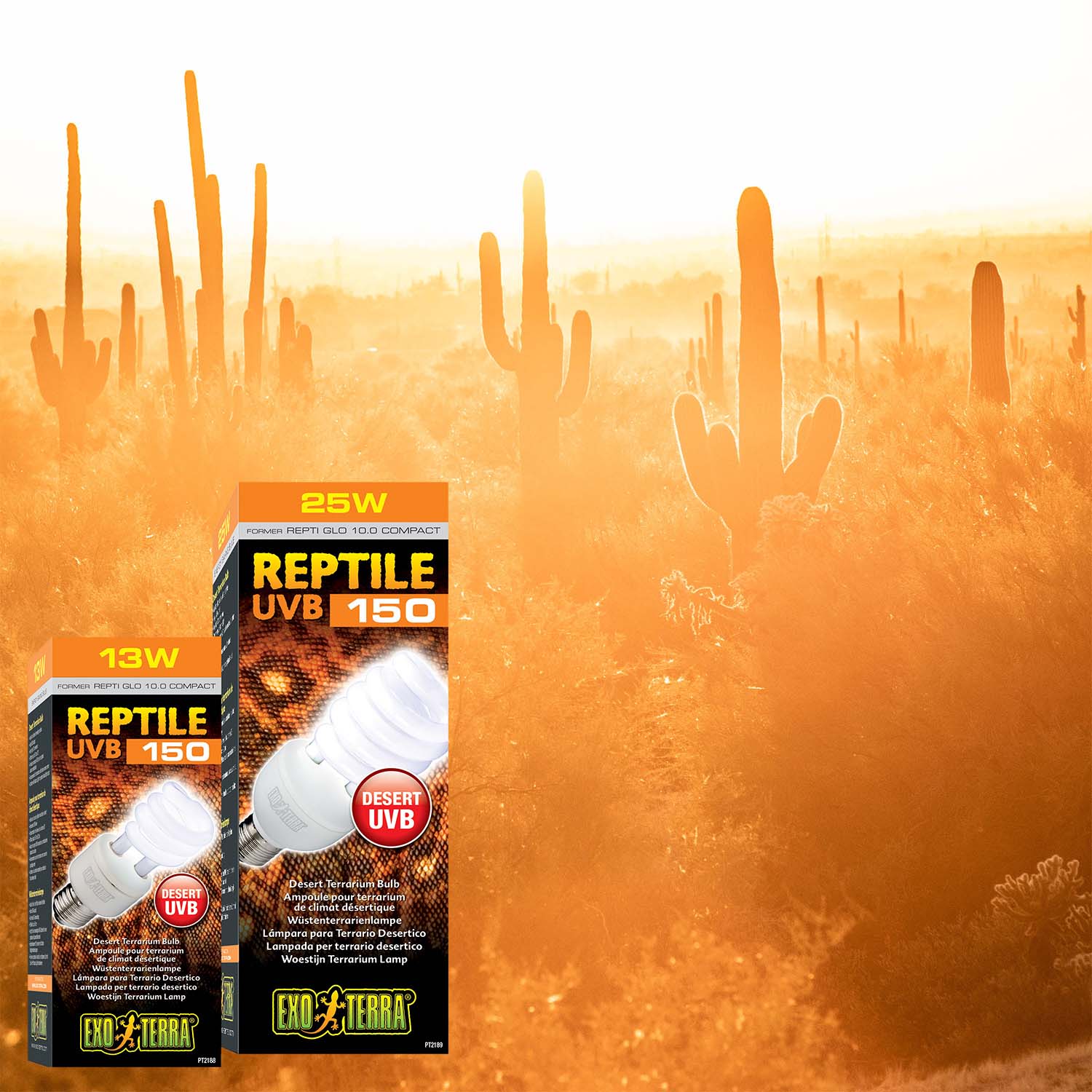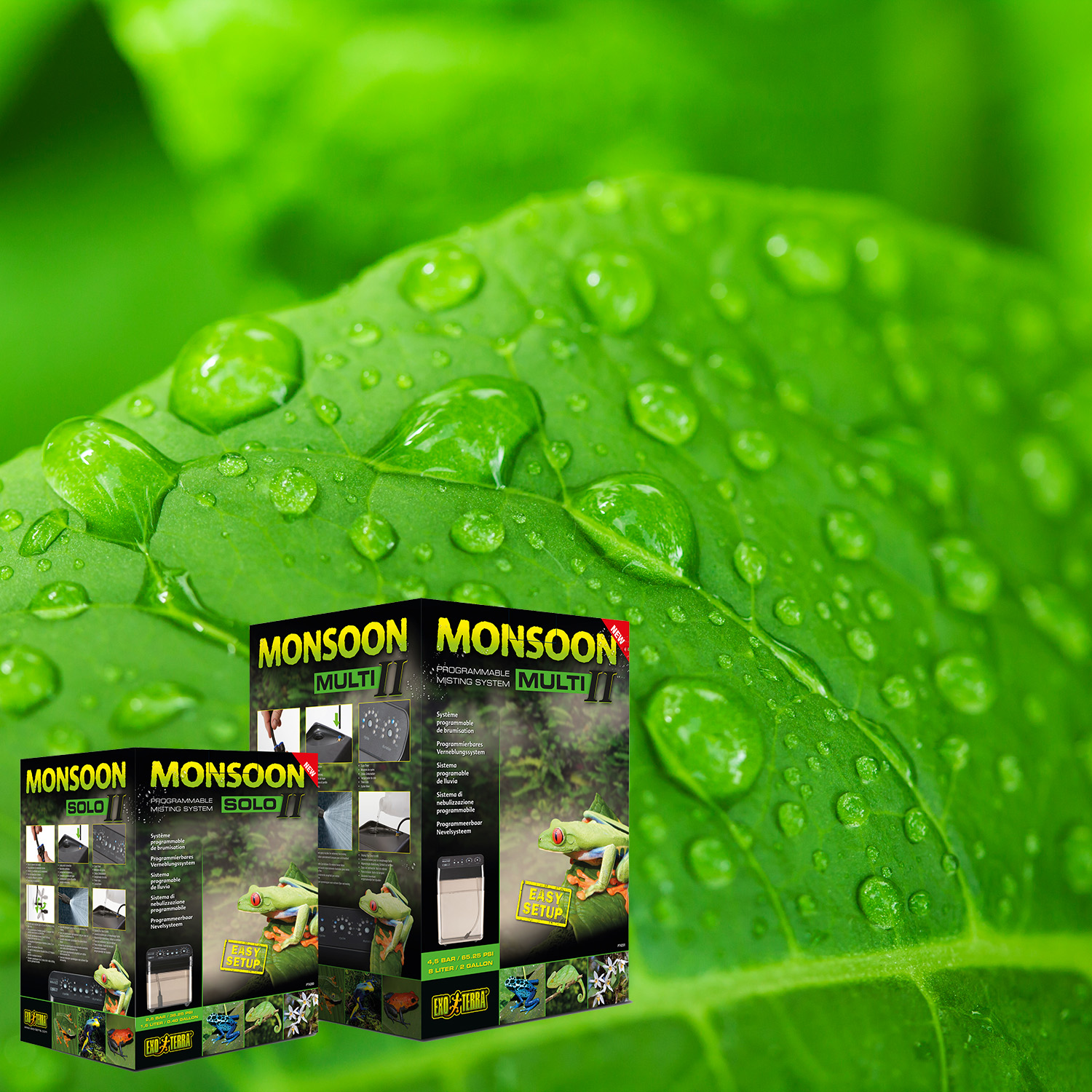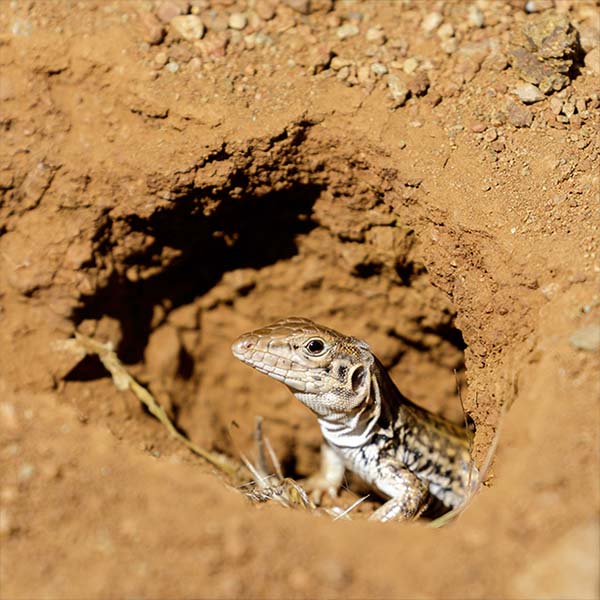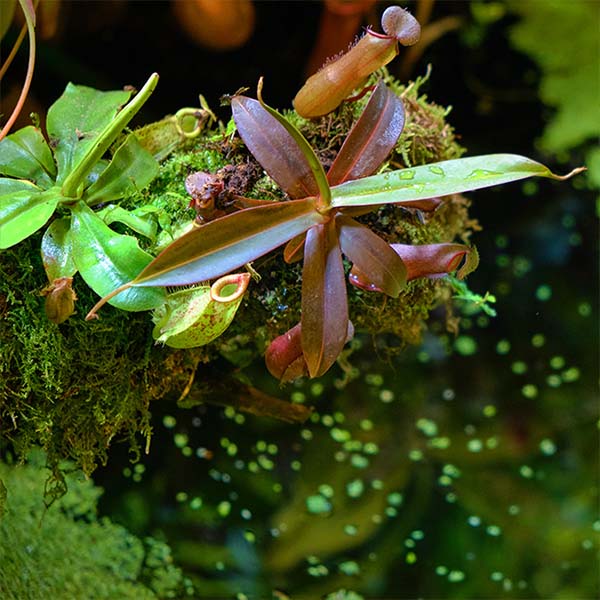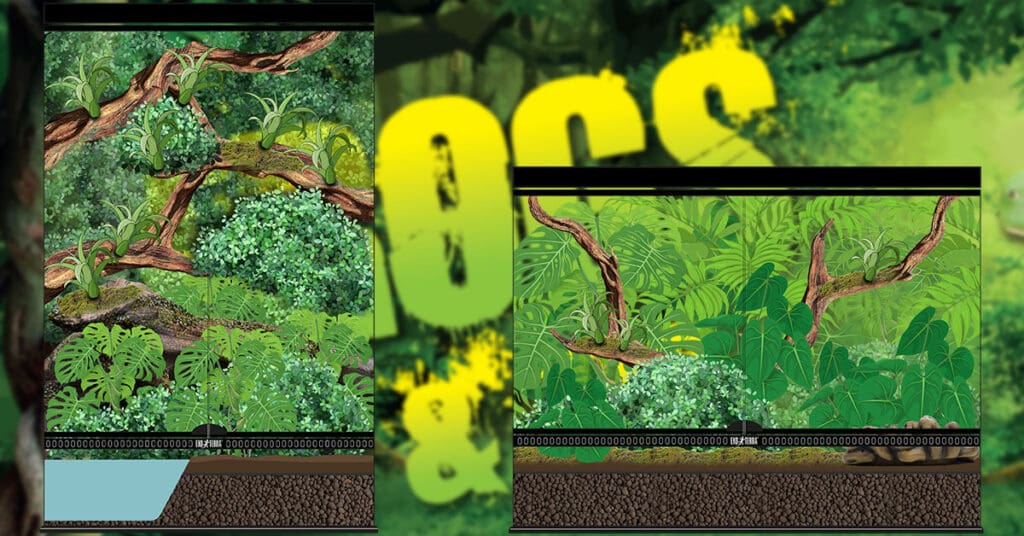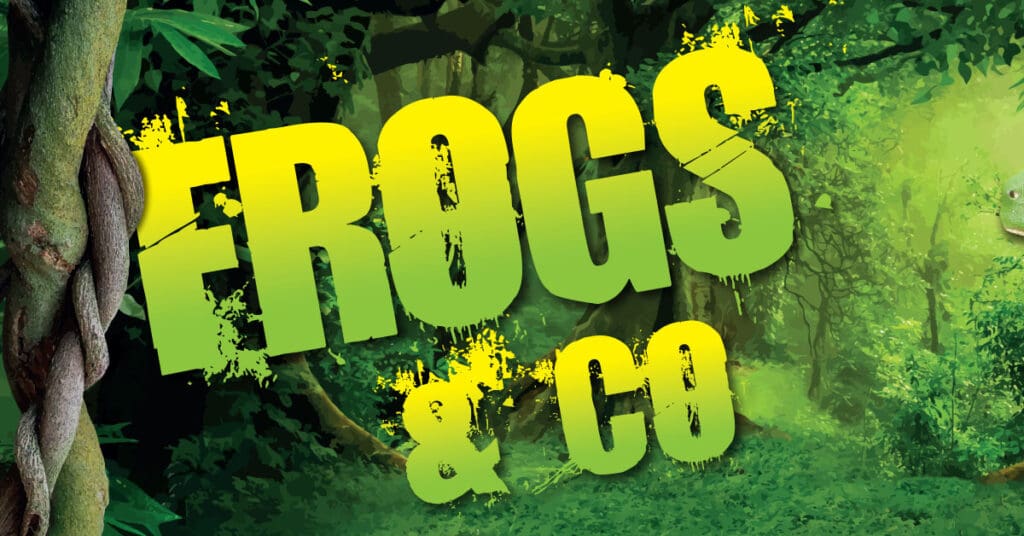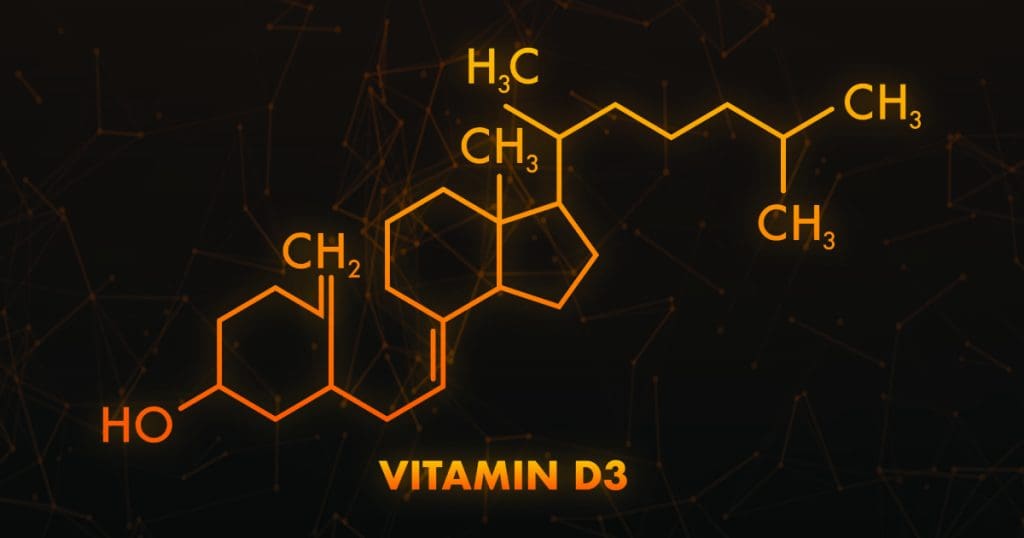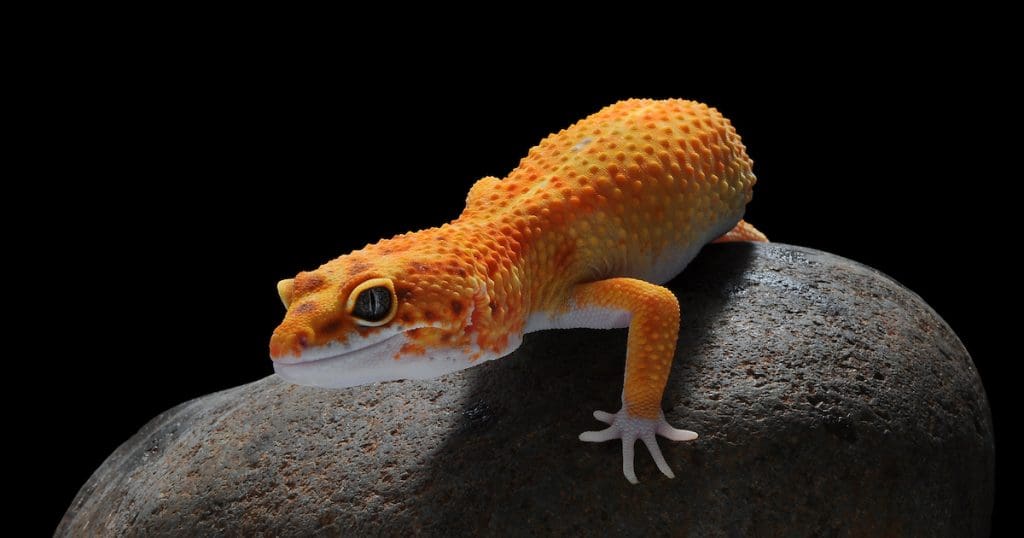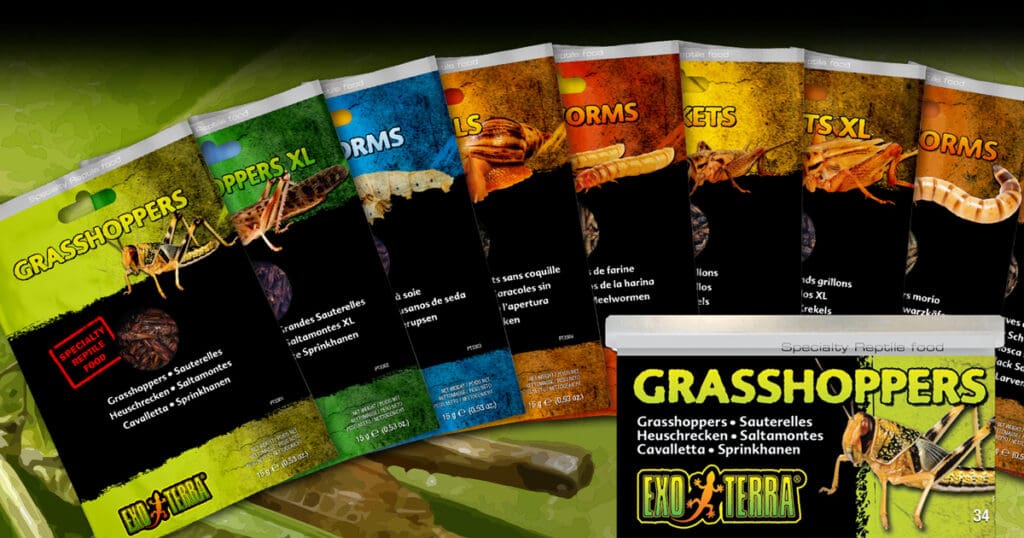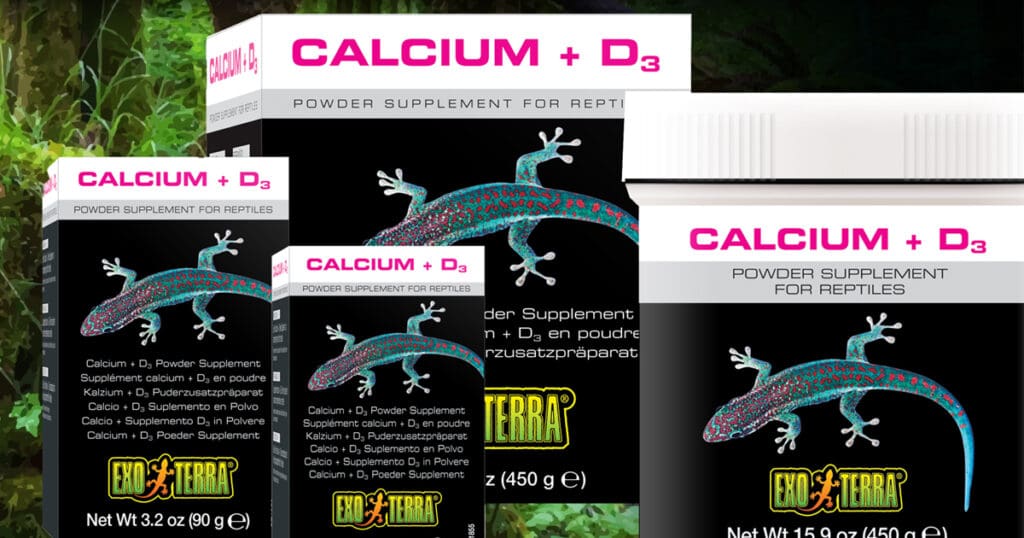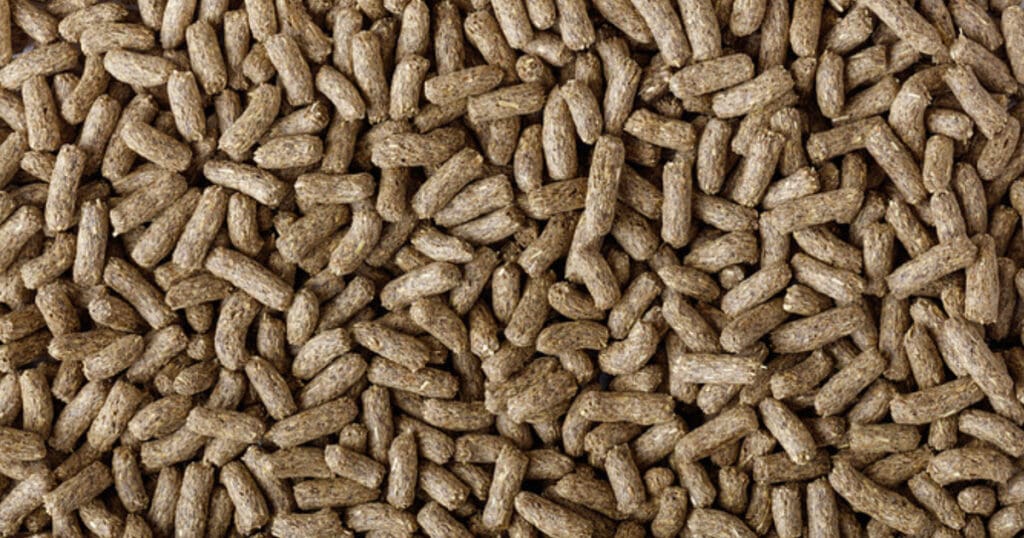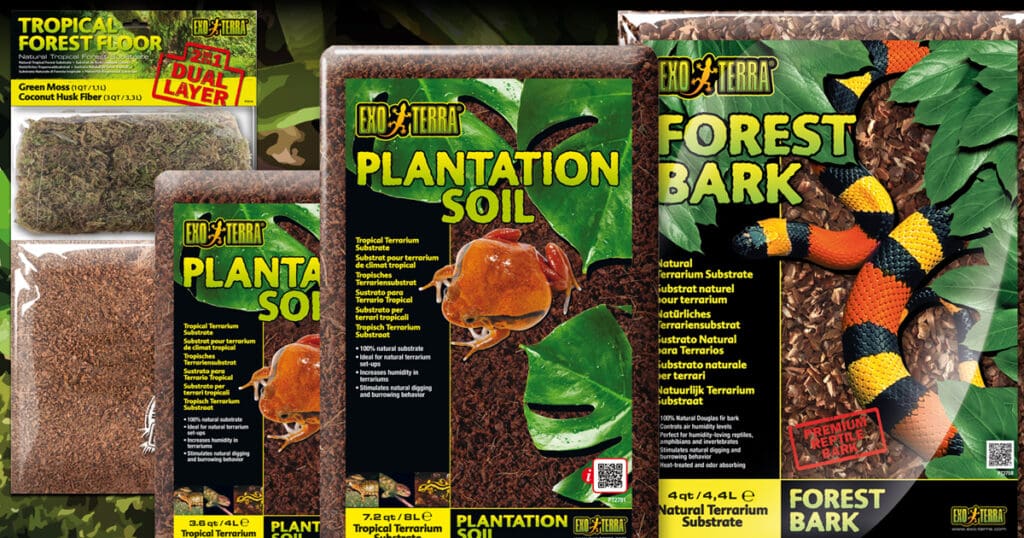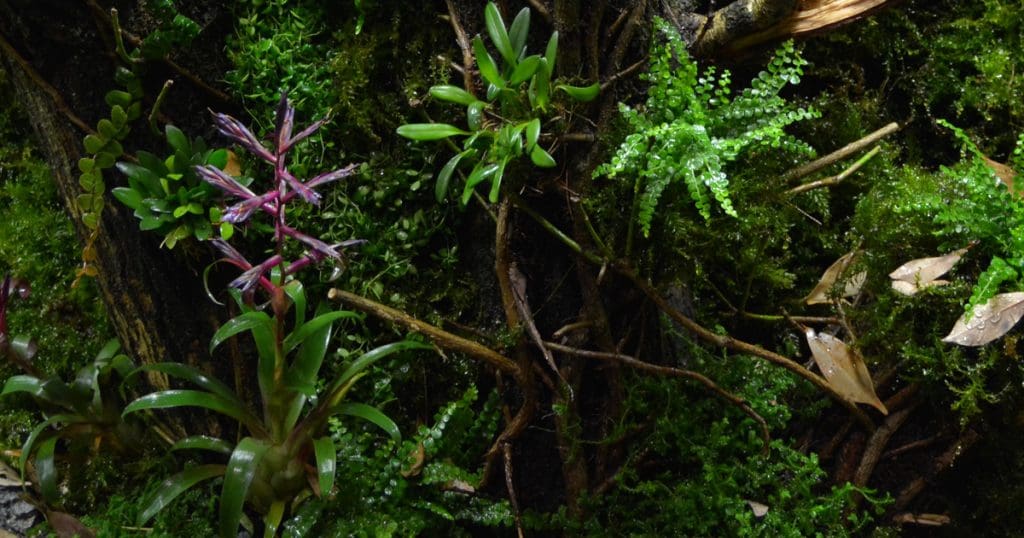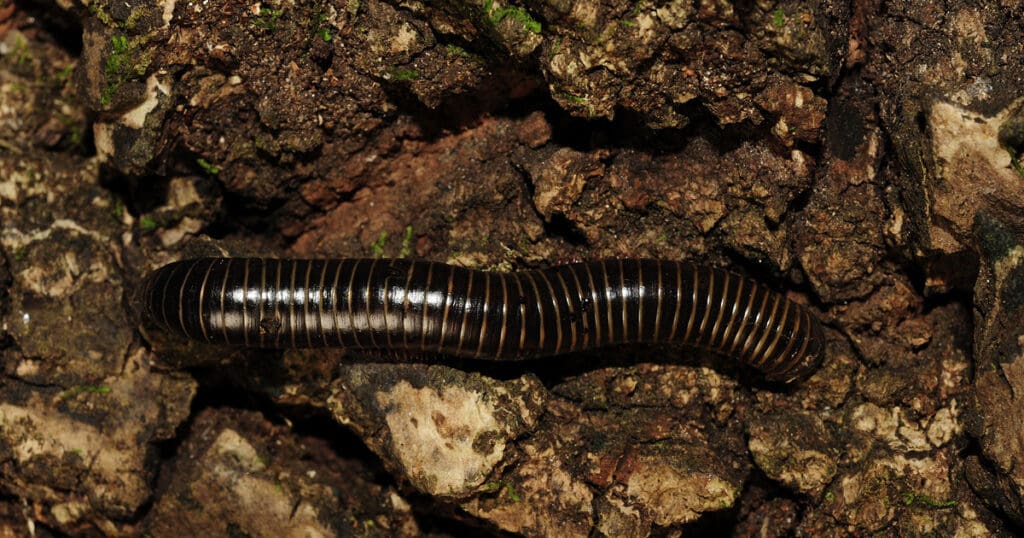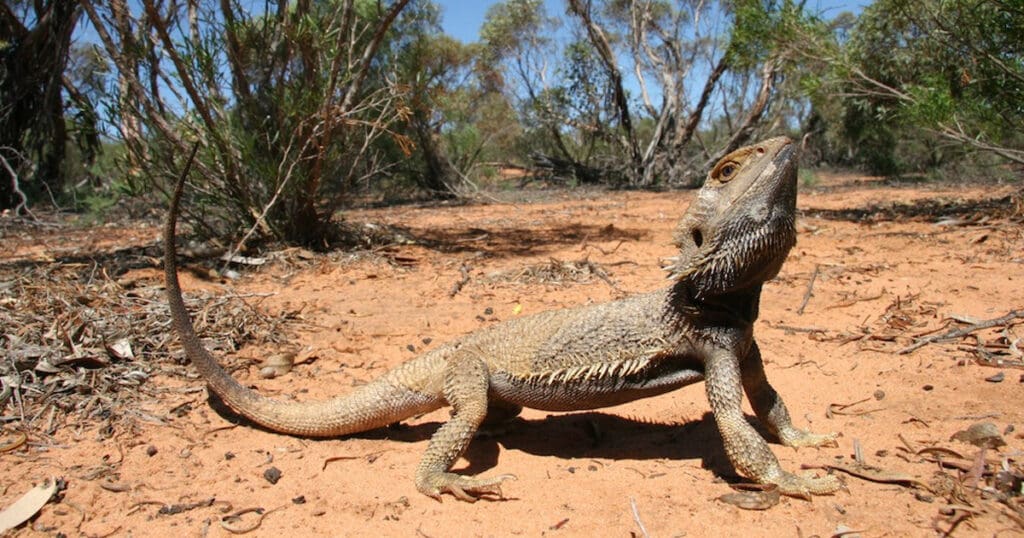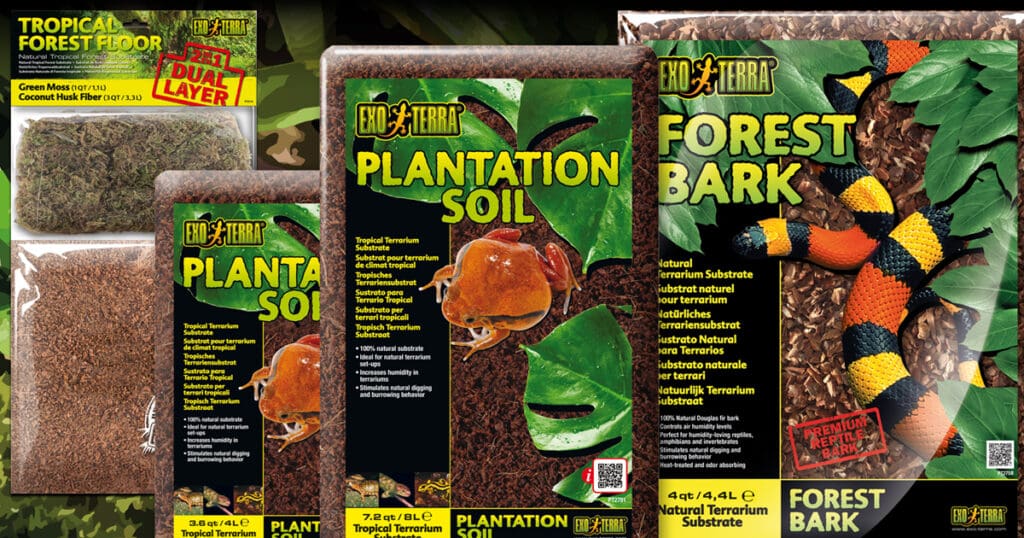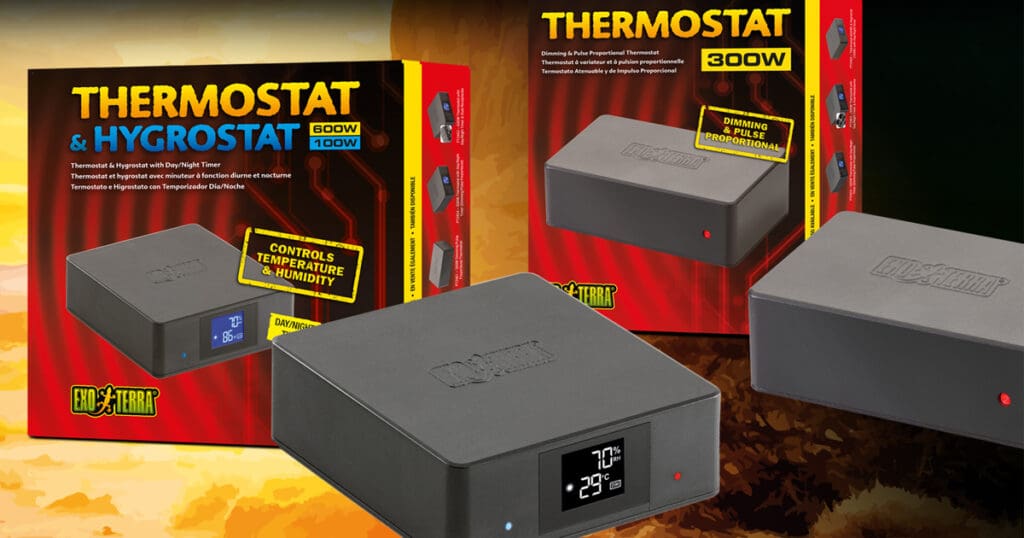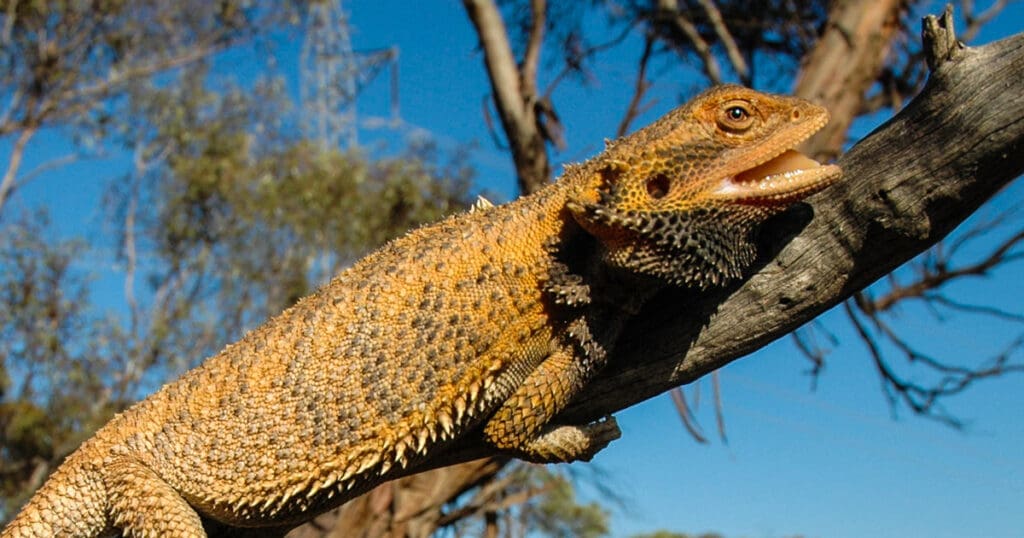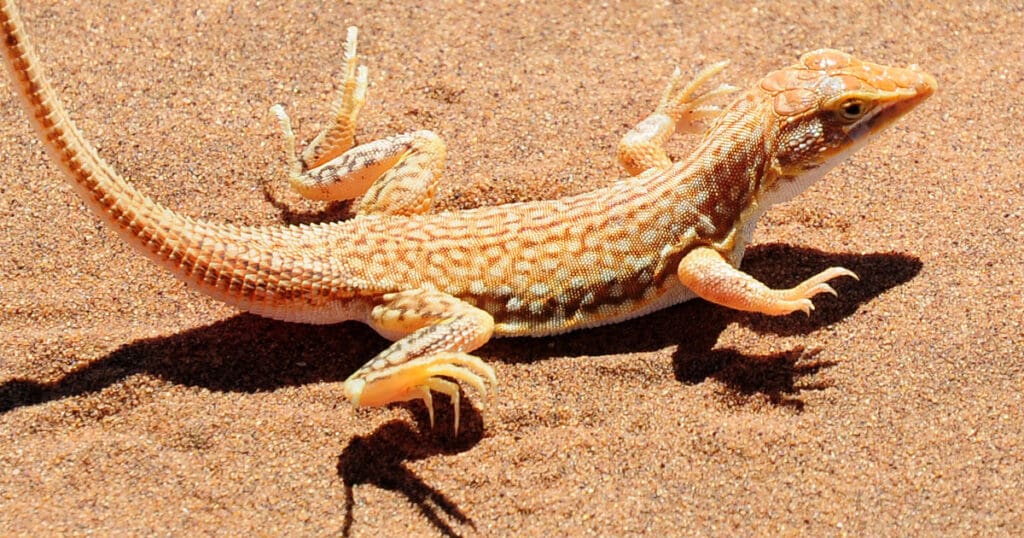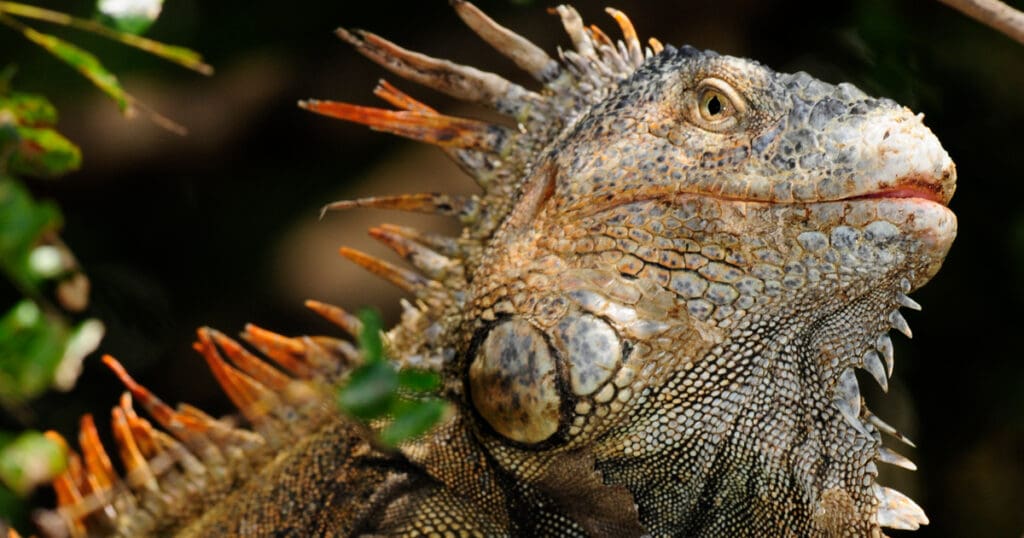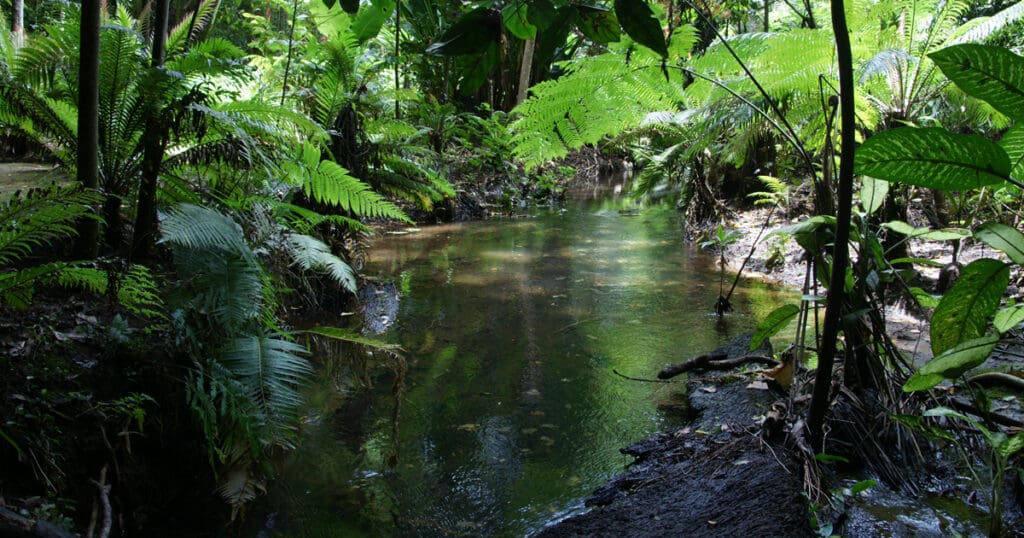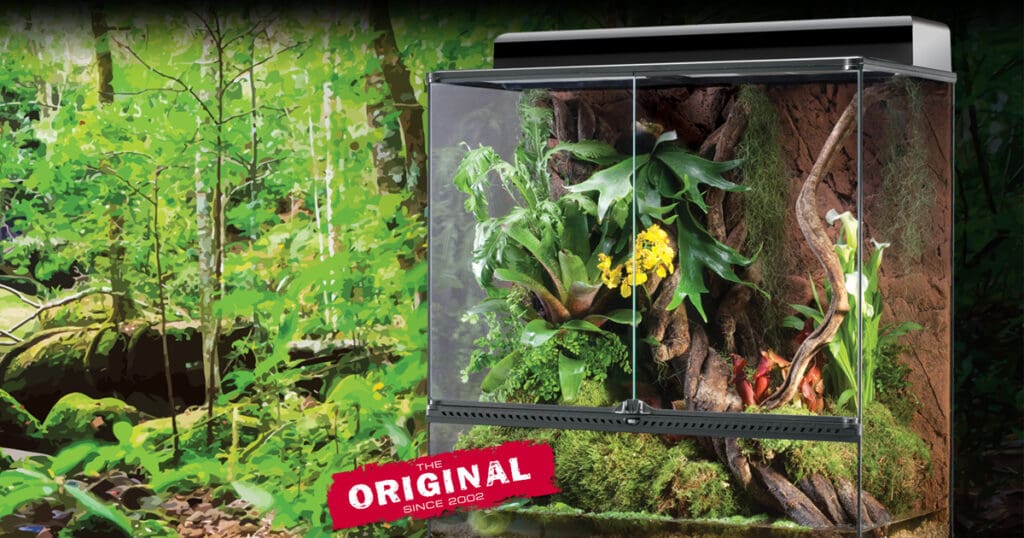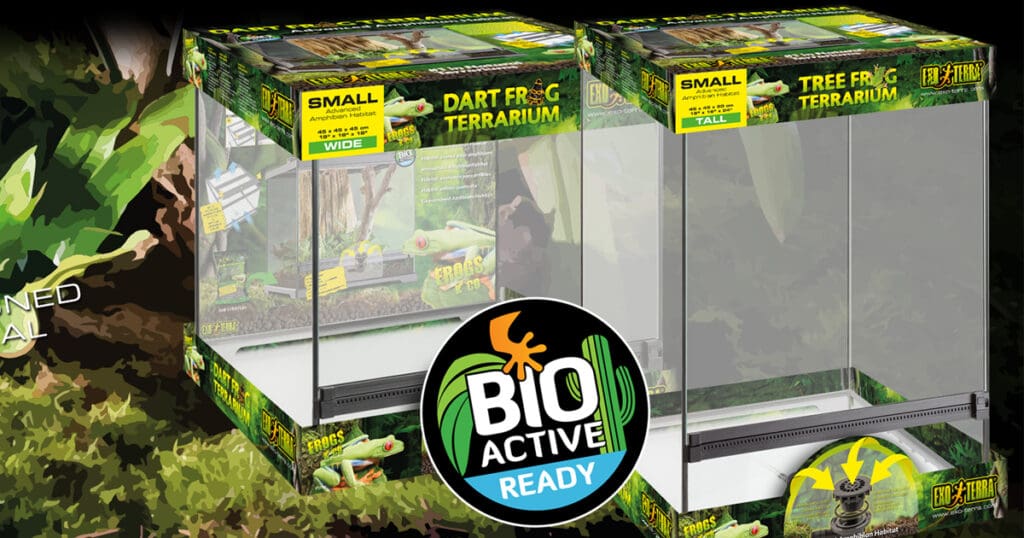
We are dedicated to enhancing reptile and amphibian well-being through top-tier habitat solutions inspired by nature. Our terrariums and accessories are crafted to reflect the reptiles’ and amphibians’ natural habitats. Beyond just products, our goal is to enlighten hobbyists and professionals, promoting responsible care and ethical treatment. Our pursuit of product innovation and knowledge-sharing is geared towards setting a higher standard in herpetological care, bridging the gap between humans and the mesmerizing realm of reptiles and amphibians.

Efficient – Low Consumption – Versatile

The Exo Terra® TerraSky UV LED Terrarium Light is a highly energy efficient terrarium light with a fully customizable light spectrum, capable of replicating various natural environments. The high intensity, horizontal orientation, and wide beam angle of the TerraSky UV LED ensures that a larger area is covered with optimal Light, UVA and UVB rays. The high light intensity in combination with UVA rays stimulate the animal’s appetite, activity, and reproductive behavior. UVA also reduces stress and contributes to the animal’s overall wellbeing. The UVB rays provide a high Vitamin D3 yield index and ensure optimal vitamin D3 photosynthesis to aid calcium absorption and help prevent metabolic diseases.
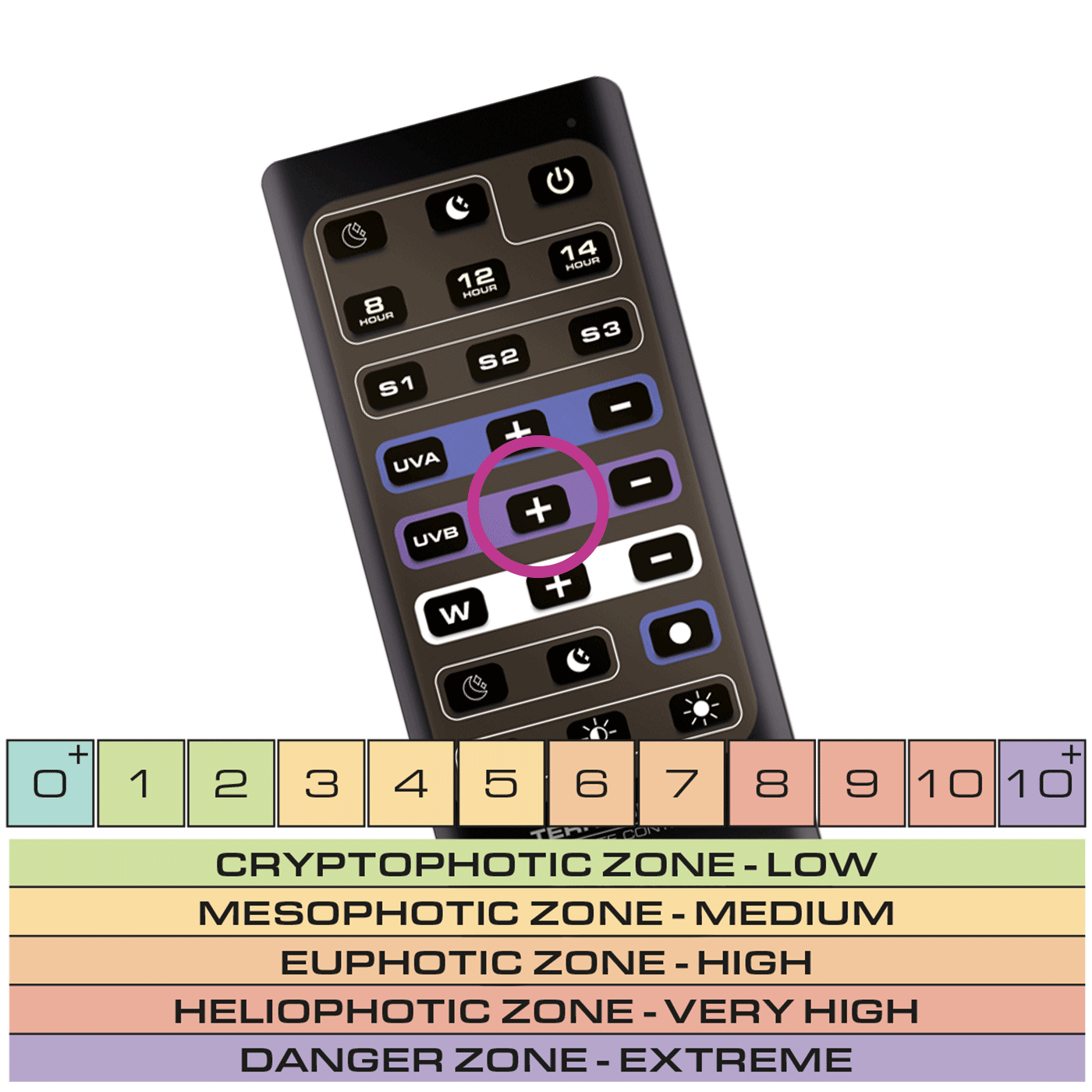
Optimal plant growth.
Prevents MBD.
Energy Efficient.
Seasonal cycles.
Versatile.


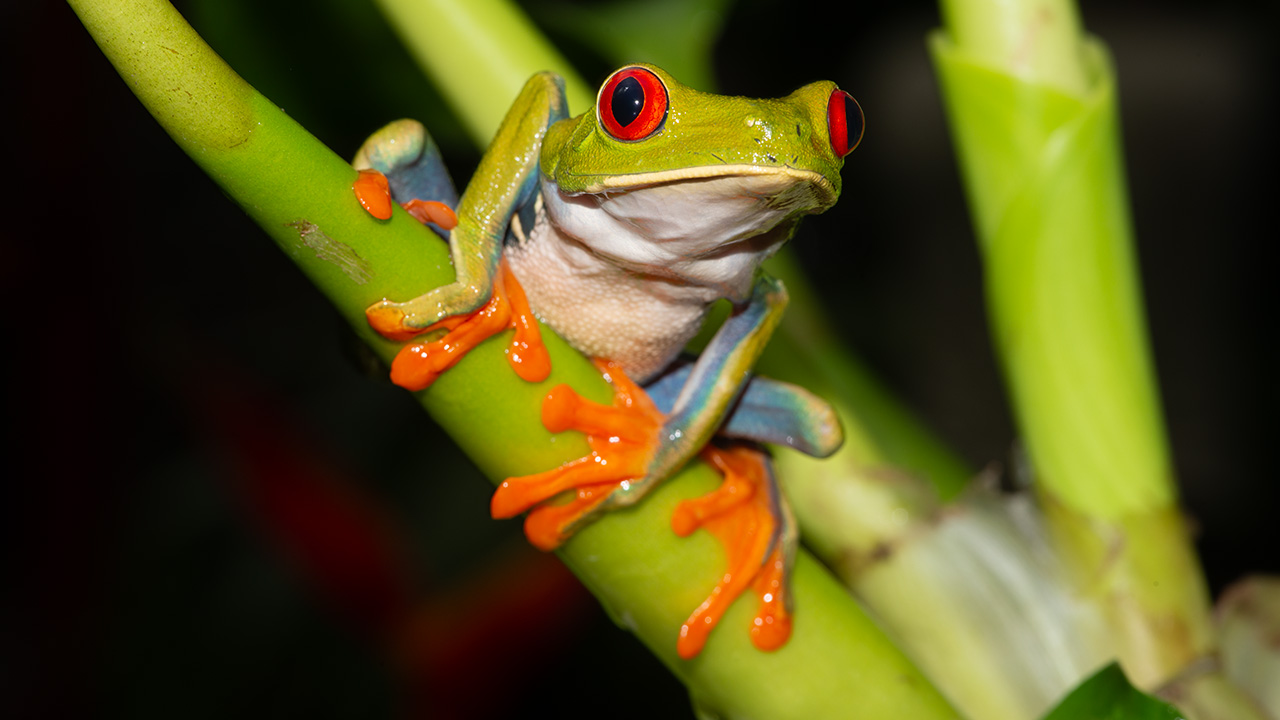
Care Guides
At Exo Terra, we understand that owning a reptile or amphibian is a unique and rewarding experience. However, it also comes with its own set of responsibilities. That’s why we’ve created this comprehensive resource to help you navigate the intricate world of herpetoculture and provide the best possible care for your animals.
Whether you’re a beginner enthusiast or an experienced herpetologist, our academy offers a wealth of information, tips, and insights to enhance your understanding and skills in reptile and amphibian care. We cover everything from choosing the right habitat and selecting suitable species to creating optimal environments and maintaining proper nutrition.
Academy
Reptile keeping is a rewarding and fulfilling hobby requiring some basic knowledge and dedication. It is essential to understand the needs of the reptile species you are interested in keeping, as each species has unique requirements for temperature, lighting, diet, and enclosure size. In this section, you will find detailed information on the various species of reptiles commonly kept as pets, including their natural history, care requirements, and potential health issues.
We are committed to providing the most up-to-date and accurate information to help you make informed decisions about your reptile’s care. We encourage you to explore our articles and resources, and let’s learn about reptiles together! Whether you’re a beginner or an experienced reptile keeper, we are here to support you on your journey of reptile keeping.
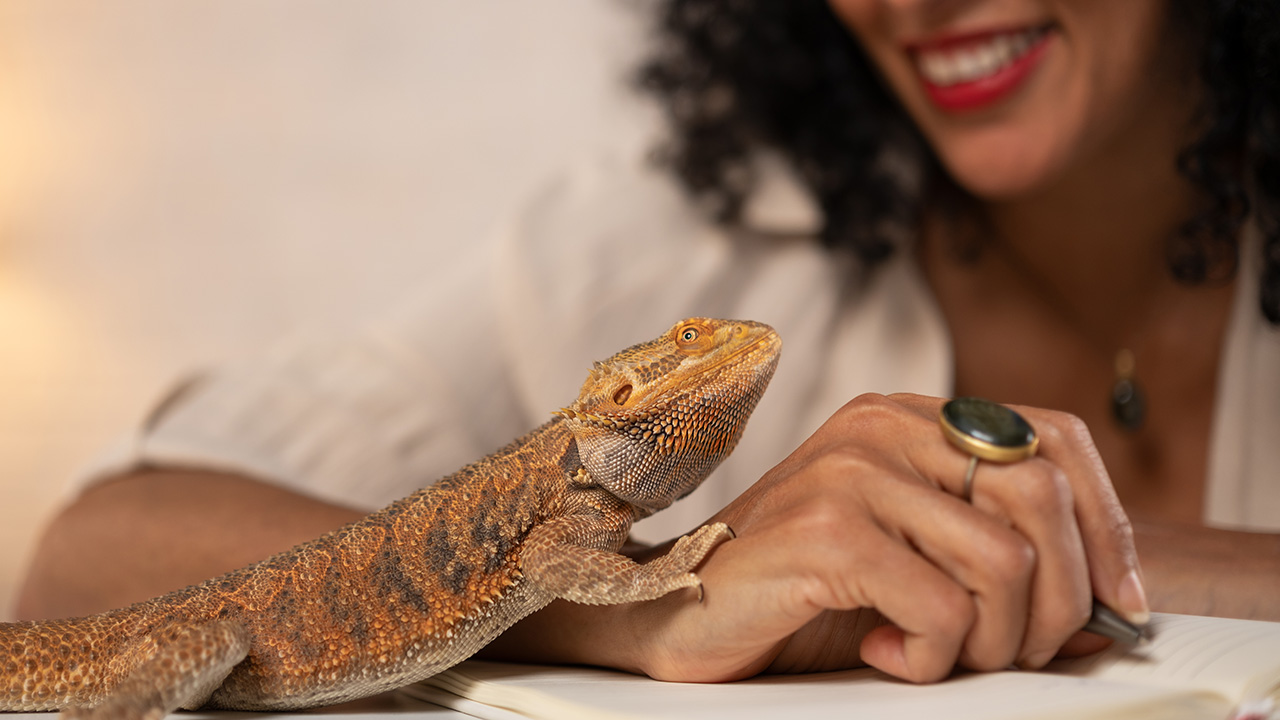
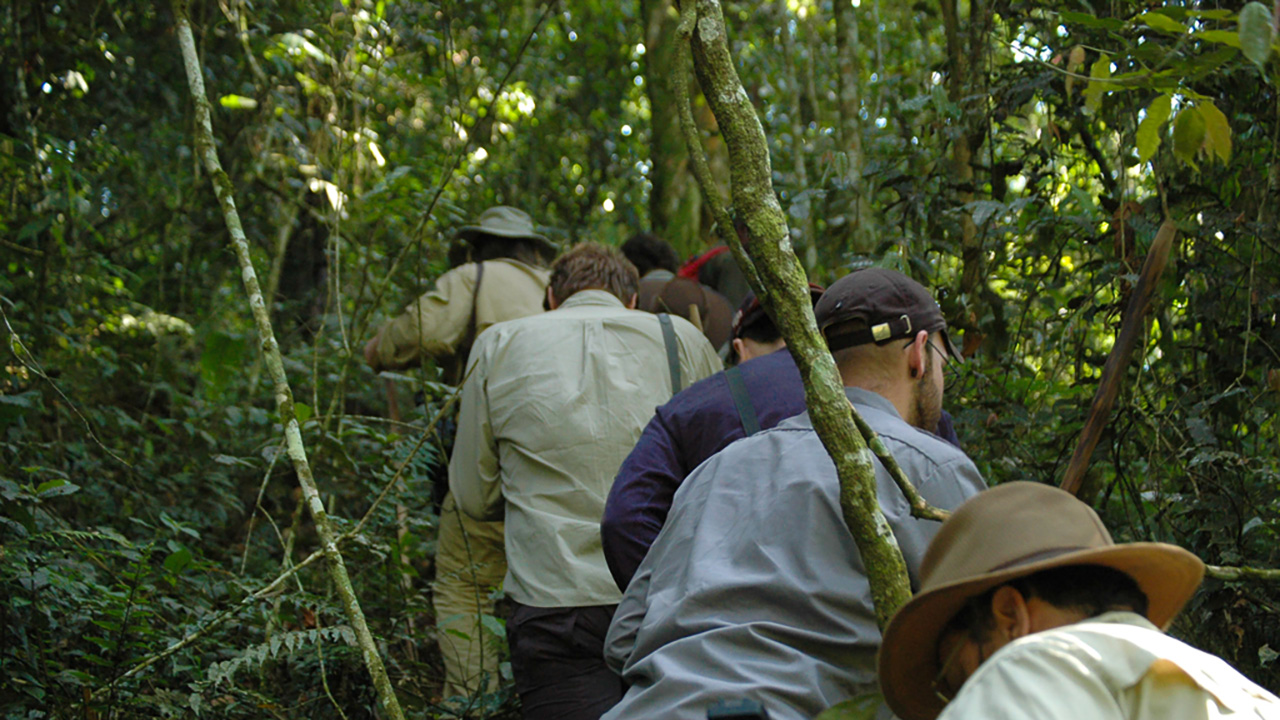
Expeditions
In contrast to other animal groups, reptiles and amphibians are neglected subjects for expedition studies. Very few reptile communities have been adequately documented concerning their ecological behaviour. A carefully conducted study lasting just a few weeks can significantly contribute to the pool of scientific knowledge for most species of lizards, snakes and amphibians.
Since reptiles and amphibians are neglected, their conservation is also often overlooked. Important sites with rare species or assemblages are destroyed or modified in detrimental ways simply because of the lack of knowledge and data. Conservation strategies rely on baseline biological data often missing for these groups.

Latest Articles
Microhabitat Types For Frogs
While the stunning colors and studying the amazing behavior of frogs have always been the motive to keep these amazing animals in a terrarium, with the recent trend towards more natural, bioactive tropical terrariums, we see a steep increase...
Frogs & Co
Frogs are almost everywhere on this planet. From the tropics to subarctic regionsThere are about 7,000 species – with the greatest diversity in the tropical rainforests. Recreating parts of these tropical rainforests is an art! The Exo Terra...
Vitamin D3 and Reptiles: A Vital Connection
Vitamin D3 plays a vital role in the health and well-being of reptiles, much like it does in other animals. This hormone is integral to mineral metabolism and bone development in reptiles. One of its most significant roles is to enhance calcium absorption from the intestines. Without sufficient vitamin D3, reptiles couldn’t absorb dietary calcium efficiently, which is crucial for their skeletal health and overall well-being.
The Myth of Nocturnal Creatures and UVB Light
The belief that nocturnal animals don't require UVB exposure has been a long-standing one in the world of reptile and amphibian care. The argument, "It’s nocturnal—it doesn’t need UVB," has been a staple for many enthusiasts and breeders. However, recent scientific studies have begun to challenge this age-old notion, shedding light on the importance of UVB for all creatures, regardless of their diurnal patterns.
Treats
Providing treats to your reptiles and amphibians offers several benefits. Keep in mind though, treats should only be given occasionally and in moderation. Too many treats can lead to nutritional imbalances or health issues, so they should never replace the regular balanced diet. Preferably, they should mimic the natural diet as closely as possible.
Supplements: a crucial food component
Reptiles and amphibians have specific nutritional requirements that need to be met to ensure their overall health and well-being. One crucial aspect of their diet is the inclusion of added vitamins and minerals (e.g. electrolytes). These essential nutrients play a vital role in supporting various physiological processes and preventing deficiencies or imbalances that could lead to serious health issues.
Dragon Grub, not your average reptile food!
Insects make up a big portion of the daily food intake of Bearded Dragons and other insect-eating reptiles. The Dragon Grub formula from Exo Terra is an enticing insect-based reptile food, specifically formulated for insectivorous reptiles and named with Bearded Dragons especially in mind. It features Black Soldier Fly larvae that are not only tasty to your reptiles; but are high in protein and very nutrient rich, with an ideal calcium to phosphorus ratio! This diet also contains natural plant and fruit ingredients enriched with vitamins, minerals and other trace nutrients to ensure a happy, healthy reptile!
Role of the substrate
In a bioactive terrarium, the substrate plays a crucial role in supporting the overall health and functioning of the ecosystem. The term "substrate" refers to the material or layer on the floor of the terrarium where plants, microorganisms, and invertebrates reside.
How to set up a bioactive terrarium
Setting up a bioactive terrarium can be a rewarding and sustainable way to keep certain types of reptiles, amphibians or invertebrates. The concept of a bioactive terrarium is to create a self-sustaining ecosystem where the animals live alongside various microorganisms that help maintain a natural balance.
The Clean-up Crew
The clean-up crew consists of a group of small organisms that work together to break down organic matter, consume waste, and control the levels of debris and detritus in the terrarium. They contribute to the decomposition process, recycling nutrients back into the soil, which helps sustain the plants and other living organisms in the enclosure.
Impaction, a secondary condition
Gastrointestinal impaction in reptiles and amphibians is considered a secondary condition: it typically arises as a consequence of other underlying issues or conditions. The primary causes that lead to gastrointestinal impaction are usually related to the animal's environment (for example temperature and humidity), diet, or overall health.
Why choose a natural substrate?
A natural substrate can harbor beneficial microorganisms that contribute to the breakdown of organic matter, recycling nutrients, and supporting a healthy ecosystem. These microorganisms create a balanced environment that mimics natural ecosystems. In a natural substrate, nitrifying bacteria can convert ammonia (produced from animal waste) into less harmful substances like nitrate. This helps maintain a healthier environment by reducing harmful ammonia levels. Some substrates can act as pH buffers, helping to maintain a stable and suitable pH level for the terrarium's inhabitants. As a consequence, natural substrates are an essential component of any bioactive terrarium.
On/Off, Dimming or Pulse Proportional?
Thermostats help us regulate the temperature inside the terrarium. There are plenty of choices available, and the wide range of possibilities is often confusing. Some Thermostats (like the Exo Terra 600W Thermostat) even allow you to choose between different options! To help you decide which one is the best in your situation, it is essential to know the characteristics of each type.
Why do I need a thermostat?
A thermostat is essential for maintaining a stable and appropriate temperature, which is crucial for the well-being of the animals or plants living inside. It regulates, and is connected to, one or more heat sources (e.g. heat mats, heat lamps or heating cables) ensuring the terrarium temperature remains within the desired range. With the thermostat, you can create a well-controlled heating system that allows you to maintain the required temperature conditions similar to those found in a desert or tropical environment.
What is thermoregulation?
Thermoregulation is the process by which organisms maintain a stable internal body temperature within a certain range despite changes in the external environment. Both reptiles and amphibians are ectothermic animals, meaning that their body temperature is primarily influenced by the surrounding environment rather than being regulated internally like endothermic animals (e.g., mammals and birds).
Understanding Ferguson Zones
The Ferguson Zones were developed in 2010 by Professor Gary Ferguson of the Texas Christian University. Ferguson and his team of herpetologists gathered data of the daily UV exposure of 15 species of reptiles. In the publication that followed, these 15 species were divided into four groups according to their thermoregulatory behaviour (daily sun exposure) and microhabitat preferences: the "Ferguson Zones". The corresponding UV guidelines were based on the average irradiance of randomly encountered wild specimens: Zone 1 with the least, to Zone 4 with the highest exposure.
What is UV-B?
UV-B stands for Ultraviolet B radiation, which is a type of ultraviolet radiation present in sunlight. Ultraviolet or UV light is a high energy portion of the electromagnetic spectrum, just beyond visible light. The UV-spectrum is divided into three wavelength groups.
What is Light?
Sunlight arrives at the top of the earth's atmosphere at a power level of about one kilowatt per square meter. It is by this energy that all life-processes on earth are ultimately driven. Without the sun's constant energy input our planet would quickly radiate away its own energy in short order, making all life extinct.
Paludariums
The word paludarium originates from the Latin word “palus” which stands for swamp. Paludariums are semi-aquatic terrarium habitats that replicate a rainforest, swamp or stream and can harbor aquatic as well as terrestrial animal and plant species. A paludarium combines the best of two worlds: an extra deep bottom allows you to incorporate a substantial water part or aquarium section adjacent to the land or terrarium section. A fully equipped and functioning paludarium is basically a small, closed ecosystem.
Why use a natural terrarium setup?
Using a terrarium setup that closely mimics the natural biotope of the species you are keeping is crucial for several reasons. A biotope refers to the specific natural habitat or environment in which a particular species is naturally found. When creating a terrarium that resembles the natural biotope, you are essentially replicating the conditions under which the species has evolved and adapted to thrive.
Terrarium Types
Reptiles and amphibians thrive in terrariums that simulate their natural biotope. Mimicking their natural habitat provides numerous benefits: it is essential for their health, well-being, and overall success in captivity. To give you a head start in finding and creating the perfect terrarium, Exo Terra described a range of habitat setups upon which you can base your animal's ideal terrarium setup:
Stay up on all things exo terra.
"*" indicates required fields
